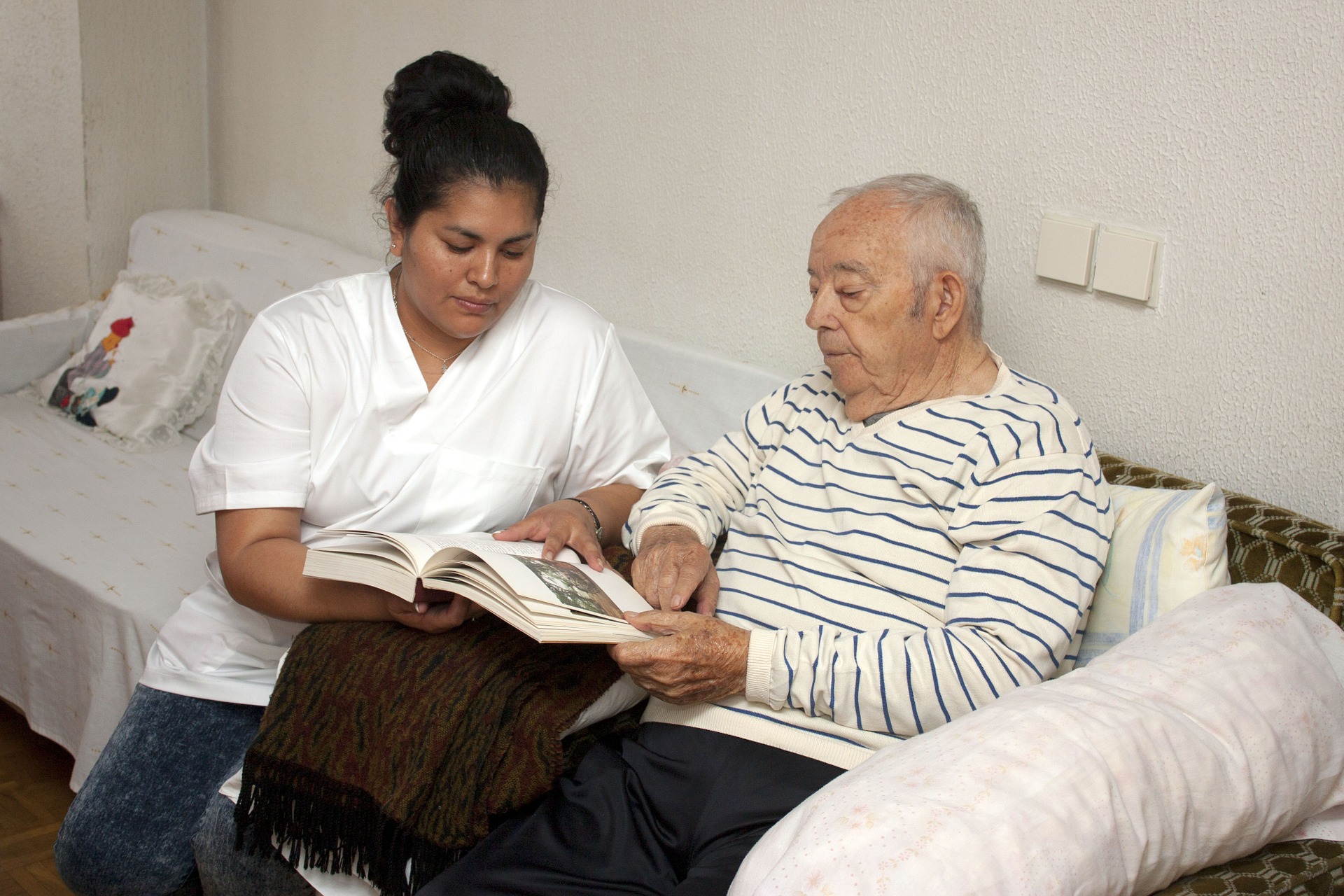When you’re caring for a loved one with dementia, getting stuck in a “conversation loop” is one of the more frustrating aspects of daily life. However, even though they may be repeating themselves, learning to continue to communicate patiently is one of the best skills you can learn to help them navigate their confusion. Remember, they are not repeating themselves on purpose, and it can be just as frustrating to be reprimanded as it is for you to hear the same thing over and over. Conversation loops are difficult but not impossible to overcome.

Why Do They Repeat Themselves?
The primary cause of any behavioral change in an Alzheimer’s or dementia patient is the progressive deterioration of their brain cells. This process results in the steady decline of a person’s ability to interact with their environment. Your loved one is obviously repeating themselves because they don’t remember that they already asked a question or completed a task – but what is the cause?
- Because the patient’s memory is deteriorating, it becomes more and more difficult to understand the world, as they can find fewer sources of comfort and familiarity. Repeatedly asking a question or doing the same thing over and over can provide some semblance of reassurance and safety.
- Your family member may be looking for help or trying to share a concern that they cannot properly verbalize, leading them to repeat questions in an attempt to resolve the problem.
How to Effectively (and Patiently) Respond to Conversation Loops
Constant verbal repetition can have an adverse effect on your loved one’s social interactions and their ability to sustain healthy relationships. But it can also be profoundly frustrating for their caregivers, who truly want to provide care on a day-to-day basis, but feel burnt out and annoyed dealing with the same question over and over. Here are a few expert recommendations to help you respond when you find yourself stuck in a conversation loop.
- Consider the Emotions: When a dementia patient repeats a question multiple times, it’s essential to understand that they may not want an answer to the question. Instead, they may be looking for comfort and familiarity. Rather than replying to their repetitive words, which makes it easy to get annoyed, concentrate on the emotions that may be causing the behavior – are they anxious or confused, for instance? If they are anxious, try to calm them with a hug or by holding their hand while sitting with them – and calmly answering their question once again.
- Use the Validation Method: Another practical method is known as the validation method, which acknowledges that your loved one may be confused and forgetful, so correcting them “logically” may not work. In fact, it may confuse them even more. Instead of trying to make them come back to reality, embrace their version of the situation and try to gently soothe their fears without correcting them. If they insist that their best friend’s name was Susan and you know it was Mary, for instance – don’t correct them over and over. Simply acknowledge their “friendship” with Susan and ask them to talk about it.
- Don’t Speak Too Much: However you choose to interact, it’s always advisable to keep your answers short and to the point. You can’t carry on a conversation with someone with dementia the same as you would with everyone else. When you give a long answer or explanation, they may lose track of what you are saying. The shorter the answer, the easier it is for them to comprehend it.
- Take a Few Cleansing Breaths: It can be challenging to remain calm when you have to answer a question for the umpteenth time, as everyone has limits to their patience.
There’s nothing wrong with you, and you are not a bad person. If you need to, take a few deep breaths and step away from the situation for a few minutes. Conversation loops are frustrating but remind yourself that your loved one isn’t doing this to frustrate you.
Do You Need Help?
Taking care of a dementia patient is difficult, and the situation can test even the most patient caregiver. It may be time – and best for both of you – to seek alternatives for their care. A Banyan Residence is a professional and compassionate memory care center located in Venice. We welcome your call and are here to help.
